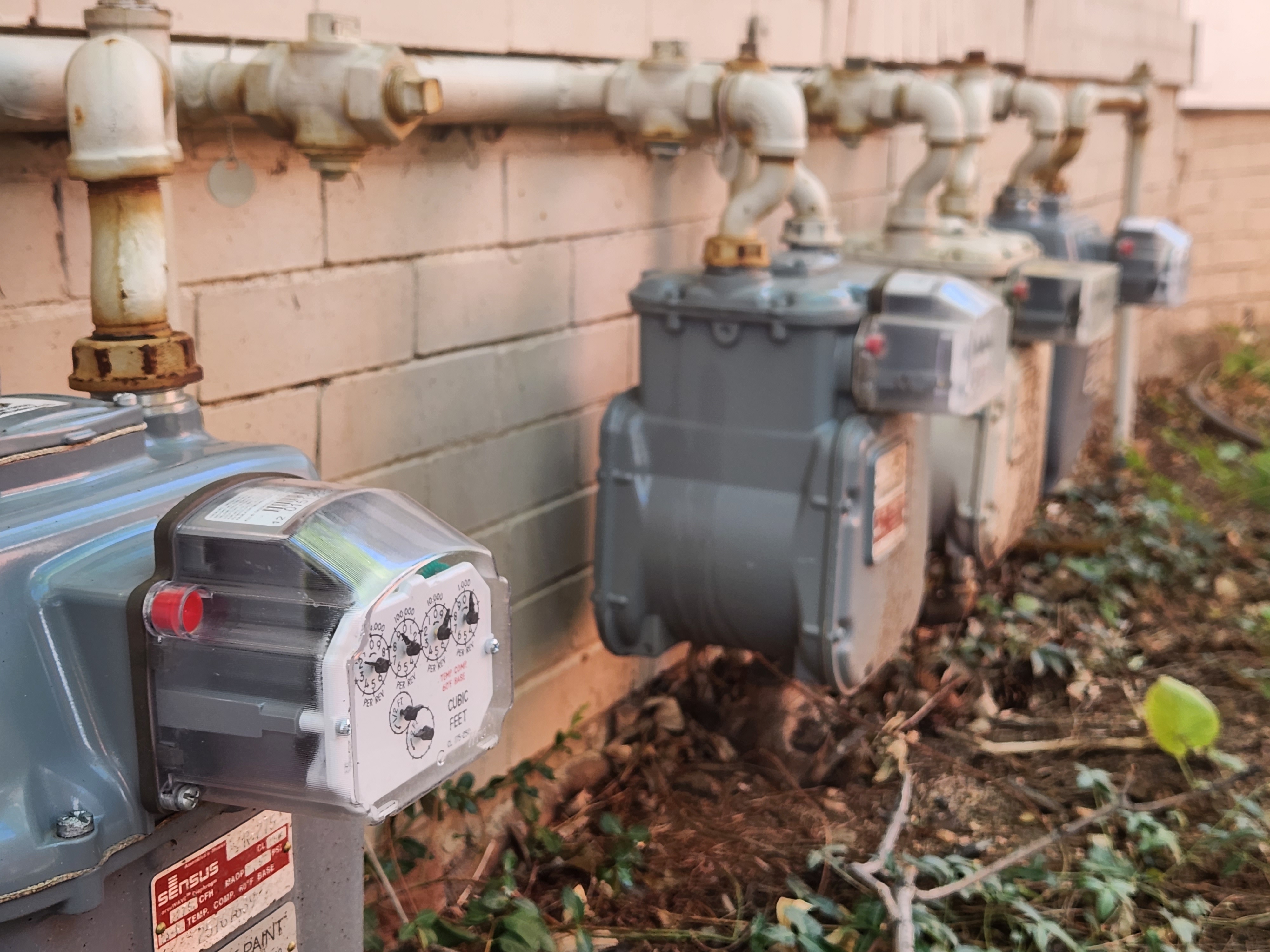This year, 236 homes in northeast Colorado could be deemed an "experiment" by Xcel Energy. Hydrogen, a highly volatile gas, will be blended with methane (known as “natural” gas) and then fed through gas pipes into these homes. Xcel is trying to get you excited about the project — it claims it will be good for the environment.
This is a lie. More than 99% of hydrogen made today is made from fossil fuels — extending the harmful local effects both social and environmental of fracking, drilling, or mining. Hydrogen makes gas pipes more likely to leak or catastrophically explode. When burned, it also creates more indoor air pollution (linked closely to asthma) than methane gas itself. And hydrogen blending is significantly more expensive and more polluting than alternatives such as electrification.
As the residents of the Box Elder Creek Ranch community near Hudson learn more about this project, the gas industry, which supports hydrogen as a way to keep their business burning and customers paying deep into the climate crisis, is watching with anxious excitement.
So let's nip this in the bud. What evidence proves that the hydrogen blending project in Hudson is a bad idea?
1. The Cost
Hydrogen creates extra, expensive and unnecessary steps to the energy grid when compared to electrifying homes to run on efficient and affordable renewable energy. We all faced skyrocketing gas bills in the winter of 2022-2023 and were left wondering how to get gas out of the picture. Xcel could profit more by creating unnecessary gas infrastructure, more gas pipelines, and hydrogen plants and customers have to pay for that infrastructure when instead, they could be saving money with electrification. For example, all-electric heat pumps can be 2 to 4.5 times more efficient than gas heaters.
Xcel first claimed that the hydrogen blending project would cost $5 million, and now claims it will cost $6.3 million. These figures do not include the cost of the hydrogen that Xcel would blend into the system, which could add hundreds of thousands of dollars each year and it could put Xcel's customers on the hook for it.
Instead, Xcel could spend that money as $2,500 rebates, which when paired with other rebates, could help electrify over ten times as many homes, helping avoid 7,000 tons of greenhouse gas emissions per year at a significantly lower cost. Xcel's blending project is only projected to avoid 25 tons of greenhouse gasses per year, for a two-year pilot. In other words, Xcel is choosing arguably the most expensive option for customers by keeping them hooked up to pipes while minimally addressing emissions.
2. The Safety Concerns
Methane pollution from appliances like gas stoves and water heaters is already linked to dangerous indoor air pollution and childhood asthma. Studies have found burning hydrogen mixed with methane actually produces more nitrogen oxides (NOx) pollution than burning methane alone.
Besides the unnecessary health costs of burning fuels in our homes, hydrogen also is known to embrittle pipes and make them more likely to leak and explode. Gas explosions are linked to deaths and hundreds of injuries across the country every year. Many policy experts have concluded that it's too risky and impractical to pump hydrogen into homes. What's the risk of having an efficient high-tech induction stove or heat pump? Practically nothing.
3. The Delay to Real Climate Action
Xcel Energy has made some positive steps to reduce climate pollution, but as a monopoly utility, Xcel wields enormous power to exercise its ability to grow profits for as long as possible, even if that hurts our environment, climate and health. When Xcel makes us buy more of their gas, we all lose.
But isn't hydrogen supposed to reduce the need for gas? As of now, Xcel has not revealed which energy source will produce the hydrogen, but we have a pretty good guess but to reiterate, 99% of hydrogen is made from fossil fuels. This means this project could be even worse for the climate than not using hydrogen at all.
What should Xcel do instead?
In Colorado especially, where severe air quality and increasingly severe weather is hurting our communities, we need to stop fracking and burning gas as soon as possible. The solution is a rapid transition to all-electric, energy efficient solutions. Energy efficiency and electrification save resources, cut bills and keep us comfortable in our homes. Adopting all-electric appliances cleans up the air in our communities, saves our bodies from pollutants and also reduces energy bills.
Instead of wasting over $6 million on a hydrogen blending project, Xcel should be devoting that money to fully electrify homes with heat pumps and energy efficiency renovations. Instead, Xcel wants to double down on the very fracked gas that's burning up our planet.
Residents of Adams County can take action by sending a message to county commissioners: CLICK HERE.
